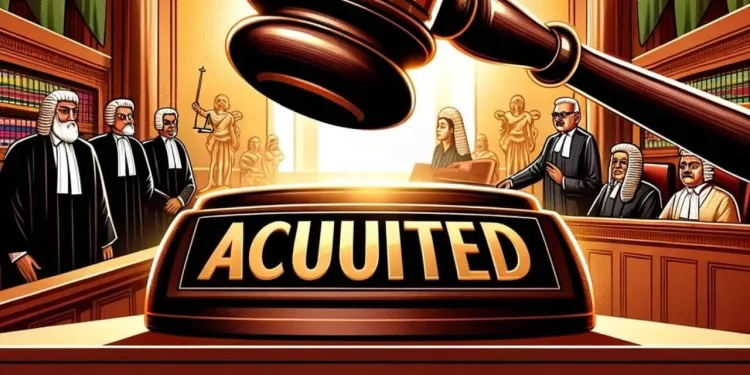Mere Absconding Cannot Solely Establish Guilt – It May Be Due to Fear of False Implication or Arrest: Acquittal in Murder and Rape Case: Supreme Court

In a significant ruling, the Supreme Court has overturned a High Court’s decision and restored the Trial Court’s order of acquittal, citing lack of substantial evidence to prove the case beyond a reasonable doubt.
“Mere absconding by an accused does not constitute sole evidence for conviction,” the apex court observed. “The behavior must be understood in context, and it is the prosecution’s burden to prove its significance.”
The Court highlighted several lapses in the prosecution’s case, notably the non-examination of material witnesses, as well as inconsistencies and omissions in the testimonies of key witnesses. “Non-examination of material witnesses by prosecution does not automatically invalidate the trial,” the Court noted, while adding that “courts are to consider whether deliberately withholding a material witness would affect the fairness of the trial.”
The ruling casts doubts on the reliability of First Information Reports (FIRs), given their proximity to legal institutions. “Doubts were cast on the origin of the FIR, given its proximity to the Magistrate’s complex and advice given by PW1 to the deceased’s children,” the judgment reads.
Serious questions were also raised about the reliability of PW1’s testimony. “It is rather strange that he did not even venture to get into the house,” the Court said, commenting on PW1’s failure to act despite being in the vicinity when the crime occurred.
The High Court was specifically criticized for its handling of the case based on circumstantial evidence. The apex court noted that the High Court “failed to adhere to standards set in previous jurisprudence” and was erroneously persuaded solely by the fact of a homicidal death.
With this judgment, the Supreme Court has emphasized the importance of a thorough examination of all evidence and witnesses, cautioning against convictions based solely on circumstantial evidence or behavioral aspects like absconding. The appellant was directed to be released forthwith if not required in any other case.
This landmark ruling is expected to have wide-reaching implications, especially in cases where conviction relies heavily on circumstantial evidence and witness testimonies.
Date of Decision: 13 October 2023
Harvinder Singh @ Bachhu vs The State of Himachal Pradesh





